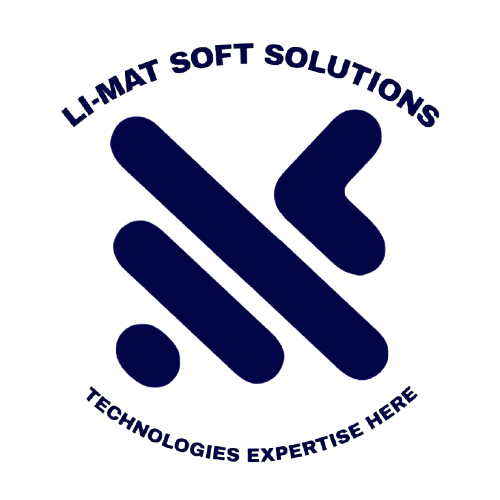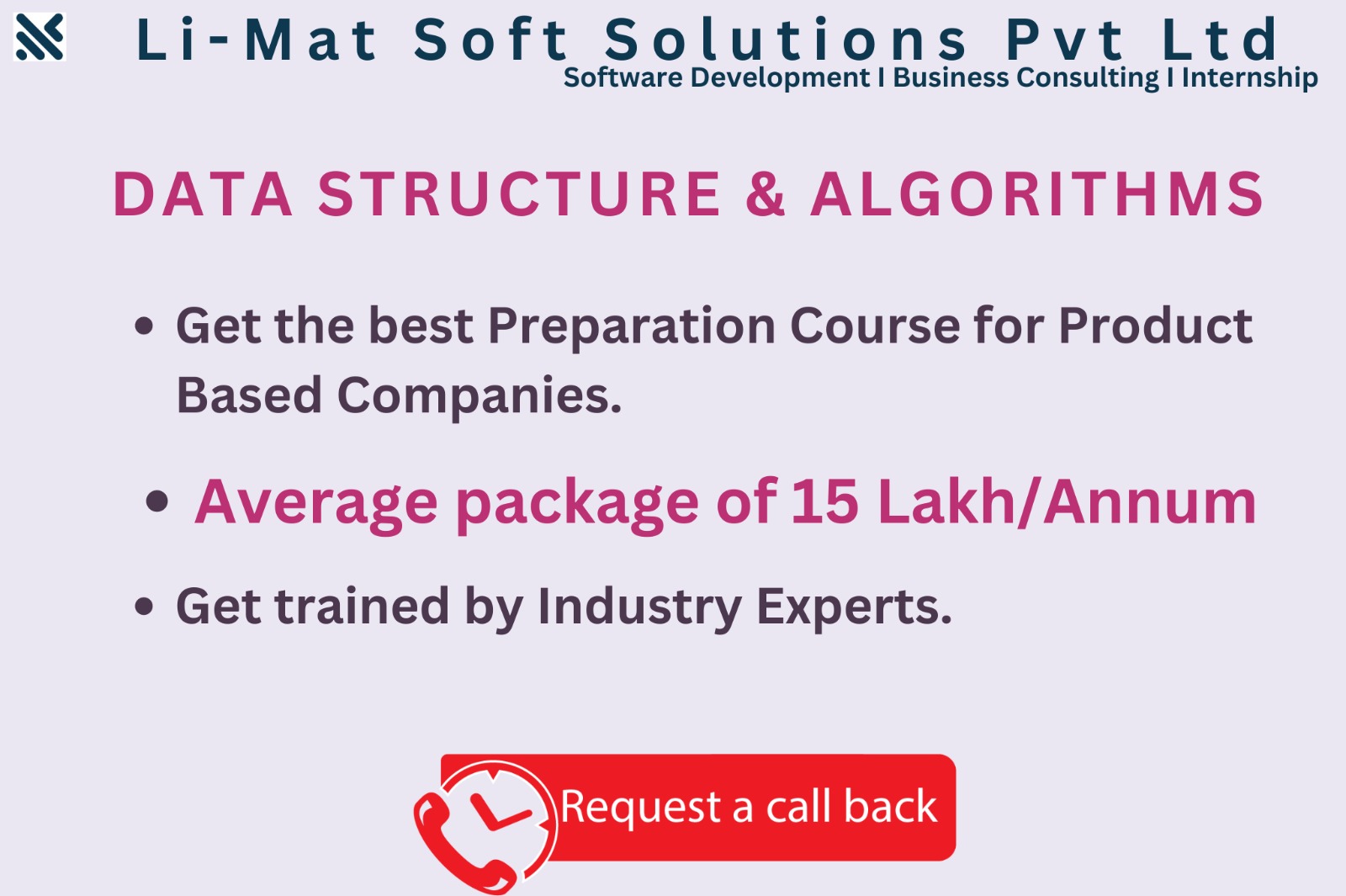Java Programming
Learn Fundamentals of programming like loops, exception-handling, and databases, along with relevant GUI and Web app development.
- Expert-led interactive sessions.
- 60+ hours of dedicated learning.
- Key projects and Certifications.
- WhatsApp Support Group.
Overview
Java certification training by LI-MAT Soft Solutions aids in meeting industry benchmarks and is curated by top industry experts. This online Java training will give you extensive knowledge of Core Java concepts. Our program is a live, instructor-led training to help you master other concepts like Java Array, Java Data Type, Java Functions & Java Loops, to name a few, with industry use cases. This Java Certification Training gives you a firm foundation in Java, the most commonly used programming language in software development. It guides you through the concepts of Java, from introductory techniques to advanced programming skills. This Java course will also provide you with the knowledge of Core Java 8, operators, arrays, loops, methods, and constructors while giving you hands-on experience in JDBC and GUI development. Upon completing this Java Certification course, you will receive a java intern certificate from LI-MAT Soft Solutions stating that you have become acquainted with the latest Java Programming skill set and proven your capability to lead Java development endeavours in your organization.
Prerequisites:Anyone interested in Java Programming for development or data science roles will excel in this Python certification course. All you need is enthusiasm to learn.
Key Takeaways:- Expert-Led Live Interactive Sessions.
- 60+ hours of dedicated learning.
- Regular Assignments.
- Assessment (Quiz/Test).
- WhatsApp Support Groups.
- Class Recordings.
- Internship Grade projects and certification.
- Java Developer
- Java Architect
- Java Programmer
- GUI Developer
- Database Administrator
- Full Stack java developer
- Java Web Developer
- Android Developer
- DevOps Engineer
- Solution Architect
- Scrum Master
Upon completion of this Java Certification course, you will be able to:
- Discover the benefits of using Java when creating desktop applications.>
- Become familiar with Java's support for object-oriented design.
- Recognize Java language parts and how they interact with one another in programs.
- Create and code Java standalone applications.
- Gain knowledge on utilizing Java AWT and Swing to create a graphical user interface (GUI).
- Gain knowledge on how to add inheritance and dynamic binding to Java classes
- Acquire knowledge of Java application exception handling.
- Comprehend how to use the Java Swing API to develop GUI components.
- Acquire knowledge about Java thread application design.>
- Acquire knowledge of reading and writing files in Java.
- Connect JAVA with Databases using JDBC / ODBC.
- Implement Socket and Network Programming concepts>
- Acquire knowledge of Java generics and the Java Collections API.
- Deal with JAVA APIs
Why learn JAVA Programming?
Knowledge becomes out of date relatively quickly in the IT industry since technology is constantly changing. Therefore, Java developers must understand Java. The most used programming language today is Java. Java is the key driver of mobile industry development, which impacts careers in mobile development. Applications are frequently developed using Java. We are here for you if you wish to pursue a career in Java. Ide one of the top Java online certification programs so you can become the person you've always wanted to be in the future.
- The most popular language for cutting-edge fields, including software development, data science, and machine learning, is Python.
- Used by 10 million developers to create applications for 15 billion Java-capable devices globally
- The national average pay for a Java Developer in India is $4,85,000, according to Glassdoor.
- Object-Oriented Programming
- Java Collections
- GUI Programming
- Socket and Network Programming
- Exception Handling
- Threads and Multithreading
- Database handling
- Working with JDBC
- Design Patterns
- Java APIs
LI-MAT Soft Solutions Java Programming Training Description
About Java Programming training
This online Java training program is intended for professionals and students who want to become Java developers. The Java course will cover fundamental and advanced Java topics, including Java Array, Collections, Database Connectivity, Threads, Exception Handling, Graphical User Interfaces (GUIs), Socket, TCP/IP Programming, APIs, File Handling, and more.
For whom is this Certified Java Course appropriate?
The following professionals are targeted by this Core Java Programming Certification course:- Java developers.
- Web designers
- Web developers
- Computer programmers
- Database Administrators
- The primary beneficiaries of this training are young people who desire to launch their careers.
How should one get ready for any Java Professional Certification exam?
What advantages does Java certification offer to both beginner and professional developers?
Many organizations utilize Java, which has gained widespread adoption. Its implementation includes desktop programs, web programs, and even microservices. Java is hence incredibly flexible. Java may be utilized to execute straightforward jobs and various complex situations.
Freshers: Because Java is so adaptable, it is a wonderful option for someone who wishes to begin a career in development.
Experienced: Java can be helpful to you if you are an experienced developer or IT expert because it is used in incredibly complex projects. The rewards listed below are ones you can anticipate as a seasoned expert.
Join in on our java certification program and become industry ready.
What is JAVA?
James Gosling created Java, an object-oriented programming language while working at Sun Microsystems. 1995 saw its initial release of it. Java's ability to run on any platform or OS without requiring code modifications is one of its most significant properties. As a result, Java was quickly adopted after its debut. Additionally, it is resource-efficient and free to use.










